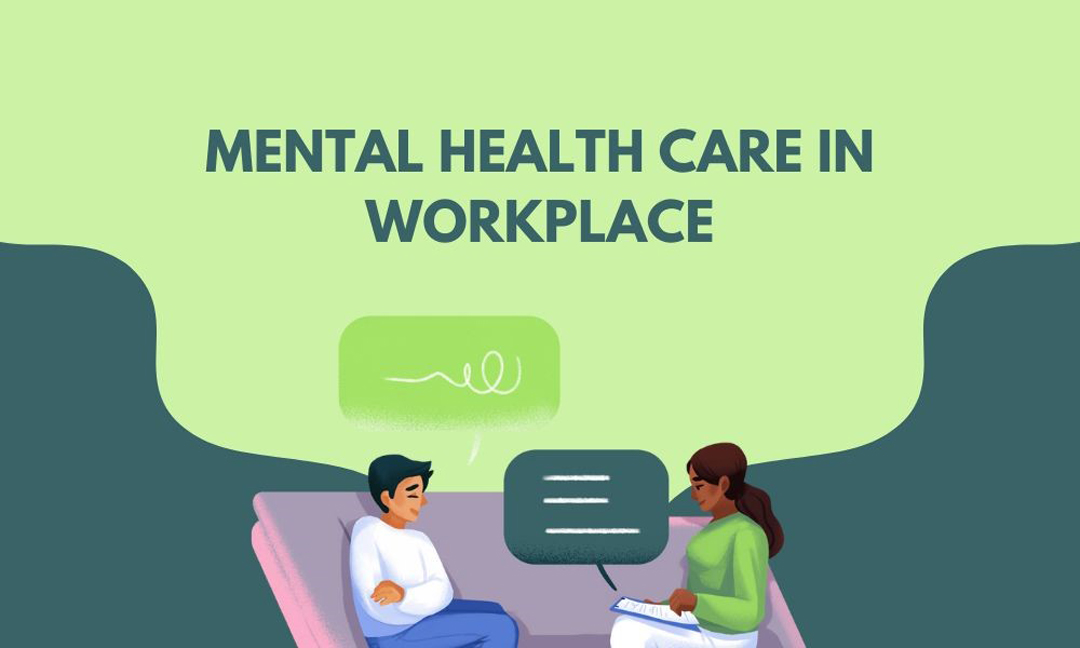
Understanding Workplace Wellness-
In today’s dynamic work environments, the pressure to perform can be intense, leading to significant strains on employees’ mental health. Recognizing this, organizations are increasingly realizing that investing in mental health support is not just beneficial but essential. Employees who feel supported in their mental well-being are likelier to be engaged, productive, and loyal to their employers. Moreover, a workplace culture that values mental health fosters trust, openness, and collaboration among team members.
Prioritizing mental health care also serves as a preventive measure against burnout, absenteeism, and turnover, all of which can incur significant costs for organizations. By offering resources such as counseling services, mental health awareness training, and flexible work arrangements, employers demonstrate their commitment to creating a supportive and inclusive work environment.
Furthermore, embracing mental health care initiatives can enhance the overall reputation and attractiveness of an organization as an employer. In today’s competitive job market, prospective employees are increasingly considering factors beyond salary and benefits, including the company’s stance on employee well-being.
Let’s begin by acknowledging the prevalence of mental health challenges in the workplace.
Based on data from mPower Minds, depression and anxiety disorders alone incur an estimated $1 trillion annual loss in global productivity, as highlighted by the World Health Organization (WHO). These figures emphasize the critical importance for employers to address mental health concerns among their workforce promptly. Promoting mental health care in the workplace not only enhances employee morale and engagement but also mitigates issues such as absenteeism, presenteeism, and turnover rates, which can significantly hinder organizational performance.
Furthermore, investing in mental health care fosters a culture of openness and acceptance within the workplace. By encouraging dialogue about mental health and eradicating the stigma associated with seeking help, organizations create an environment where employees feel comfortable discussing their struggles without fear of judgment or reprisal. This fosters higher levels of trust and camaraderie among team members, thereby strengthening the organization’s fabric.
Another compelling reason to prioritize mental health care is its direct impact on productivity and creativity. Research indicates that employees experiencing high levels of stress or burnout are less productive and innovative than their mentally healthy peers. By offering resources such as counseling services, stress management workshops, and mindfulness training, employers can empower their employees to better cope with workplace stressors and unlock their full potential.
So, Why Should We Address Mental Health Care in the Workplace?
Eventually, addressing mental health in the workplace isn’t just morally right; it’s also beneficial from a business standpoint. Studies consistently show that organizations prioritizing employee well-being outperform competitors in profitability and growth. Mentally healthy employees are more engaged, resilient, and adaptable, enabling them to navigate challenges effectively and drive positive outcomes for the company.
In addition to benefiting individual employees and organizations, promoting mental health care in the workplace has broader societal implications. By proactively addressing mental health issues, employers alleviate the strain on healthcare systems and social support networks. This contributes to a more sustainable and equitable society where everyone has the opportunity to thrive.
The Mental Health Survey 2023 done by Mpowerminds has uncovered the reality of the mental health of corporate employees. This report has been compiled by collecting data from numerous interviews and questionnaires conducted with 3000 corporate employees across major metropolitan cities in India. The aim was to gain insight into the diverse challenges they encounter in their respective sectors, cities, roles, ages, genders, and other relevant factors pertaining to mental health.
Here Are A Few Findings of This Survey
- Every 9 out of 10 employees agreed that they lack work-life balance.
- Nearly 90% of corporate employees mentioned that mental health and well-being are extremely important and they are very motivated to improve their mental and physical health.
- In terms of mental health risk profile, a total of 48% the corporate employees are at risk of poor mental health.
To know more read the Mental Health Survey 2023 by Mpower.
Things to Do for Employees Better Mental Health –
So, what can employers do to prioritize mental health care in the workplace? Firstly, they can implement policies and initiatives promoting work-life balance, such as flexible work arrangements and paid time off for mental health days. Additionally, offering employee assistance programs (EAPs) providing confidential counseling and support services can be instrumental in helping employees manage stress and seek help when needed.
Training managers and supervisors to recognize signs of mental distress and respond with empathy and support is essential. By fostering a culture of compassion and inclusivity throughout the organization, employers create an environment where employees feel valued and supported in their mental health journey.
Lastly, employers should strive to create physical work environments promoting well-being, such as providing access to natural light, green spaces, and ergonomic furniture. These simple yet impactful changes can significantly enhance employees’ overall mood and productivity.
So, What You Can Expect from Your Office Mental Health Care Facility?
An effective mental health care facility offered by an organization should provide comprehensive support tailored to individual needs. This may include access to licensed therapists or counselors for confidential counseling sessions, resources for stress management and coping strategies, educational workshops on mental health awareness, and assistance in navigating mental health resources outside of the workplace. Additionally, the facility should promote a stigma-free environment where employees feel comfortable seeking help without fear of judgment. Regular follow-ups and assessments to monitor progress and adjust support as needed are also crucial components of a quality mental health care program within an organization.
Conclusion
In conclusion, the significance of mental health care in the workplace cannot be overstated. By prioritizing employee well-being, organizations not only foster a more positive and productive work environment but also contribute to a healthier and more prosperous society as a whole. As we navigate the challenges of the modern workplace, let’s remember that nurturing minds is just as crucial as nurturing success.
Comments
comments